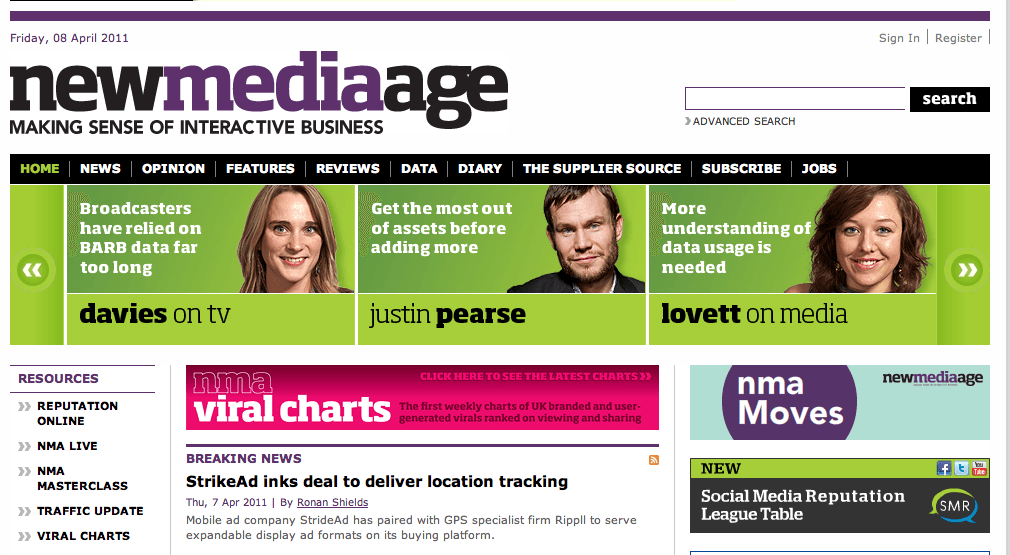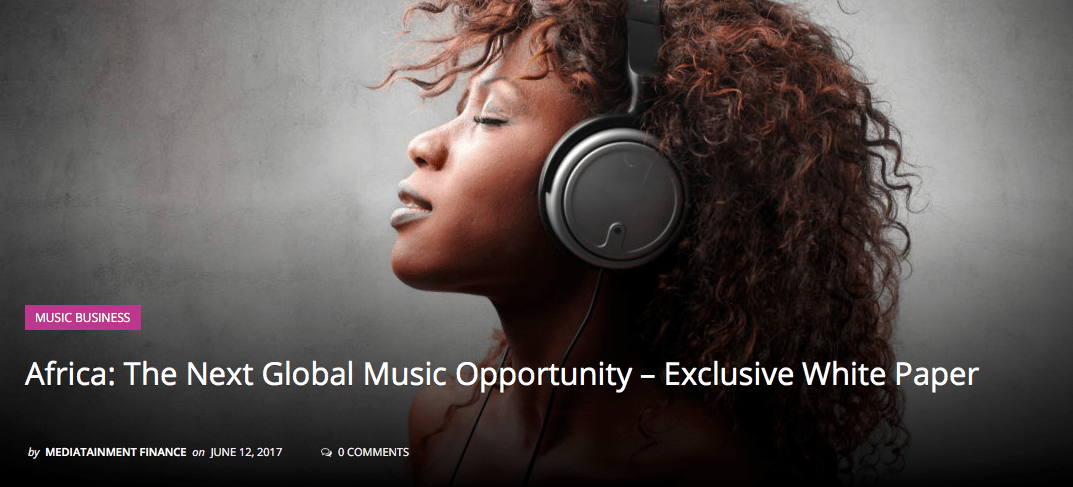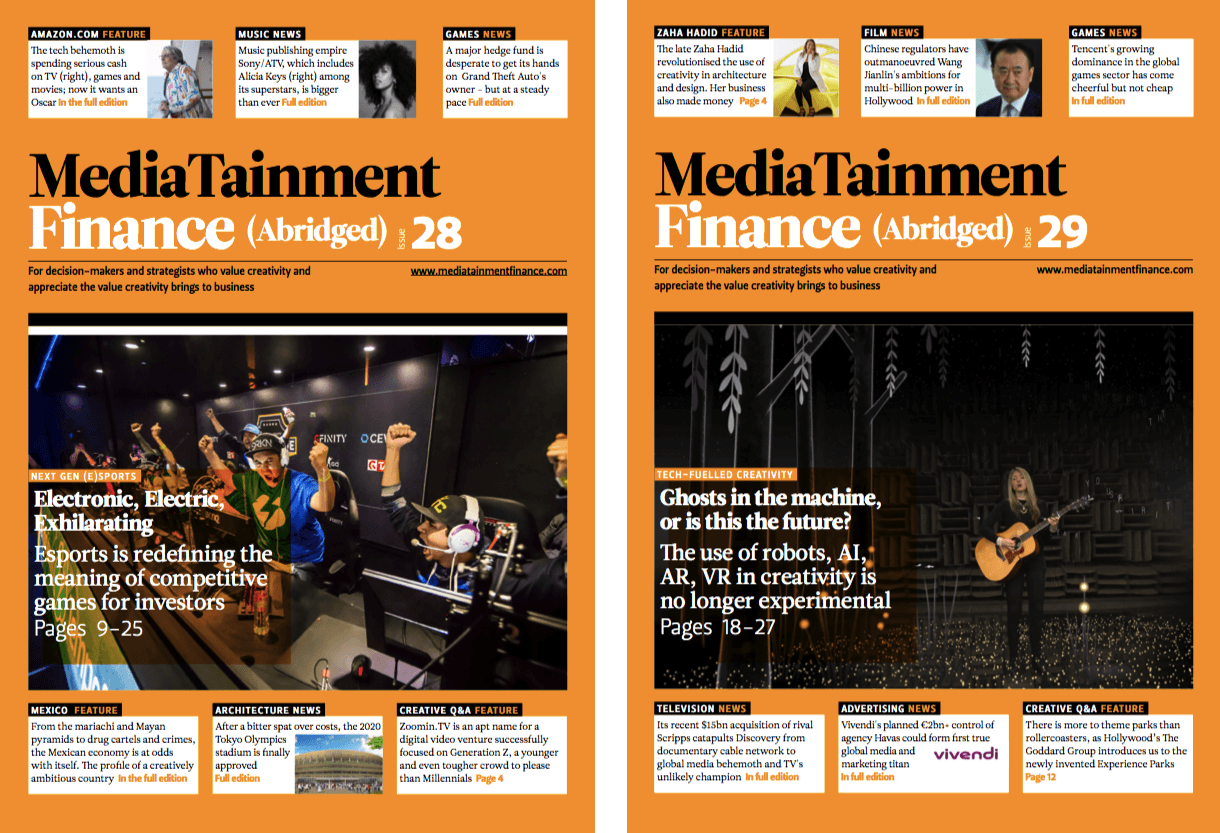We recently sat down with business journalist and media consultant Juliana Koranteng to discuss the current state of sync and the music industry, and how digital is disrupting the entertainment and media industries as a whole.

Juliana Koranteng
Hi Juliana. Can you give us some background on your history in the media and entertainment industries?
I’m a business journalist focusing on the international media and entertainment businesses. Whilst I was in the States doing my master’s degree, I was freelancing for Marketing Week magazine. It was the mid 90s and the internet was taking off, but no one was covering what people were doing with it from a business perspective. As lot of the first applications were within the entertainment industry, for example with video and music, I found it interesting so I came up with the concept of New Media Age magazine. Centaur, the publisher of Marketing Week, ended up buying it and taking it over, and I stayed on as the consulting editor for a while.
So I’ve really been involved in the digital revolution from the get go. Over the years, I’ve been a correspondent for Time magazine, a contributing editor for publications like The Hollywood Reporter, Billboard Magazine and Advertising Age and a writer of several reports and books for the Financial Times. I started JayKay Media Inc. to launch my own publications in 2011: MediaTainment Finance and TechMutiny. The former looks at investment in the creative industries, and the latter keeps track of technologies affecting the creative sectors. We’ve also been able to build up a database that keeps track of acquisitions, mergers, and other transactions, as well as who’s done what with technologies.
The digital revolution has brought down a lot of barriers so everything’s interlinked nowadays
That’s what makes the work we do at JayKay Media Inc. very interesting. All of these media and entertainment sectors might be different, but their needs are becoming very similar. It’s all about understanding the value of intellectual property, and how people use other creative works to enhance their businesses.
You recently mentioned that sync isn’t getting enough credit for its role in the music industry’s recovery. Can you expand on this?
At a music industry press conference when sales and revenues were still diving, I was genuinely surprised when a senior executive casually said sync wasn’t too important as it only accounted for a tiny percentage of the revenues. Yet, the labels had been telling journalists they were not too worried about the value of music going down because artists were being encouraged to make their music available to the film and TV worlds.
Now that streaming has improved revenues, in my opinion, the music industry is no longer mentioning sync as much as they did. I think the recorded music industry has underestimated the role that sync has played in enabling fans to discover new releases and catalogue recordings. Thanks to the emergence of new digital entertainment like Netflix spending billions on original content, there are more music-licensing opportunities. I read in Music Business Worldwide that sync brings in hundreds of millions of dollars more than the revenue figures normally quoted. Once the gathering of data improves, the industry is going to realise the extent of how much sync is being undervalued.
A lot of the deals are done behind closed doors, but there must be a way at tracking sync income more effectively
There must be, I agree. The whole industry would benefit from more accurate facts and figures to assess its true value. At the end of the day, tracking income is a service, and analysing figures with greater accuracy can only help the market.
What effect do you see the digital content bubble having on sync?
The opportunities for sync keep growing. In addition to music videos, short-form scripted and factual content is booming. The videos could be 5, 10 minutes long, and they (almost) all require music. Virtual Reality is still in the early stages but a significant amount of those experiences will need music. Then you’ve got some left-field developments made possible thanks to digital. Burberry Acoustic is effectively a music-video label on the designer label’s website. They go looking for unsigned acts who look good in Burberry clothes and record them playing music, which is made available via iTunes or streaming platforms. Suddenly, an international fashion house is enabling unsigned acts to bypass record labels to get exposure. You’ve got acts like Chance The Rapper defying what a recording artist can do in the business. He didn’t need a label. A lot of grime artists and rappers initially ignored by the big labels have done their own thing – thanks to accessible digital technology. Labels will always be needed. But aspiring recording acts now have choices.
What are your thoughts on how technologies such as blockchain will impact the industry?
Technology is just a tool, albeit a cool one. It is supposed to help humans, not take over from them. Creativity is something that is uniquely human, whether it’s painting or designing or composing. A white paper on advancing technologies like blockchain and AI that I recently produced for Midem is trying to get across that artists don’t need to become experts in technology, but they need to know of its existence and how it can help them. Take the pencil – an artist does not need to know how to manufacture a pencil. He or she just needs to understand how it works, so that they can then manipulate it to bring their visions to life. In the same way, all artists should be encouraged to understand how to adopt technology, whether it be VR, AR, AI or blockchain.
What, in your opinion, have been some of the game changers in media and entertainment over the last couple of years?
MediaTainment Finance was one of the first publications to cover esports, as competitive video gaming is called, as a business. It might be small in terms of revenue, but it’s had a lot of investment from venture capital firms, media companies and football clubs. That’s what digital tech has done: brought together video games, live entertainment, media and sports to create a totally new business for today’s digitally native consumers.
Another interesting development in the media world has been the vulnerability of China. A few years ago, if China wasn’t investing in your business you weren’t important. But the Chinese government is restricting the amount of money going abroad. That’s been a massive wake-up call for Chinese investors, like the Wanda Group, investing heavily in Hollywood.
We need to keep an eye on the live-music business too. It surpassed recorded music in revenue terms in recent years. And yet, only a handful of companies like Live Nation are investing in it via acquisition sprees. It’s hard to tell how healthy that will be for the sector long term.
The international broadcast-TV business has been severely disrupted by on-demand streaming platforms. Netflix and Amazon have used their deep pockets to produce award-winning original shows, which is important at a time when the audience for linear-TV is declining. But that disruption looks set to continue as tech-centric corporations, like Facebook and Snapchat, with their billions of social-media subscribers, have also pledged to spend billions on original content to create their own video-entertainment services.
2018 is going to be unforgettably unpredictable.
You created a white paper “The New African music frontier” for Midem earlier this year. What made you focus on the African music industry? What other territories do you find interesting?
When I first covered the African music industry, it was purely about piracy, piracy, piracy. But on a continent where the majority of the population is very young and mobile-phone penetration is extensive, a new generation of local entrepreneurs and artists are taking matters into their own hands. In addition to an intense local live-music business, over which they have some control to make a living, they are able to sell recorded music to the African diaspora in the rest of the world. Something made possible thanks to digital distribution. Not only is that development helping more Africans understand the financial value of music, it is also undercutting what pirates (who continue to thrive) can do. Now even foreign investors, such as the major record labels, are reinvesting in Africa. Protecting publishing rights might not be so successful yet. But experts are optimistic that will improve too.
Digital has also enabled the concept of the global hit, like South Korea’s “Gangnam Style” and now “Despacito” by Puerto Rican acts. Twenty years ago, only their local audience would have had access to the physical recordings. Now hits can cross borders digitally legally.
I recently went to an event where a speaker from Nielsen, an authority on what’s happening with recorded music worldwide, said that some of the biggest hits (in terms of numbers) are coming from places like the Philippines. I think the origins of multi-territory hits will broaden in the future.
Thanks so much for taking the time to chat with us Juliana, and for those fascinating insights!
More about Juliana Koranteng and JayKay Media Inc.:
London-based JayKay Media Inc. was founded by Juliana Koranteng, a business journalist, editor, published author of B2B books and reports, and media consultant. The company specialises in writing and publishing news reports, features and analytical reports on the international media and entertainment businesses, including film, TV, music, sport, video games,global marketing, live entertainment, book publishing, fashion, architecture, art, and related copyright issues.
Check out JayKay Media Inc.’s business journal MediaTainment Finance, which focuses on investments in the international creative, media and entertainment sectors, and TechMutiny, which focuses on the technologies disrupting and revolutionising the creative sectors.


